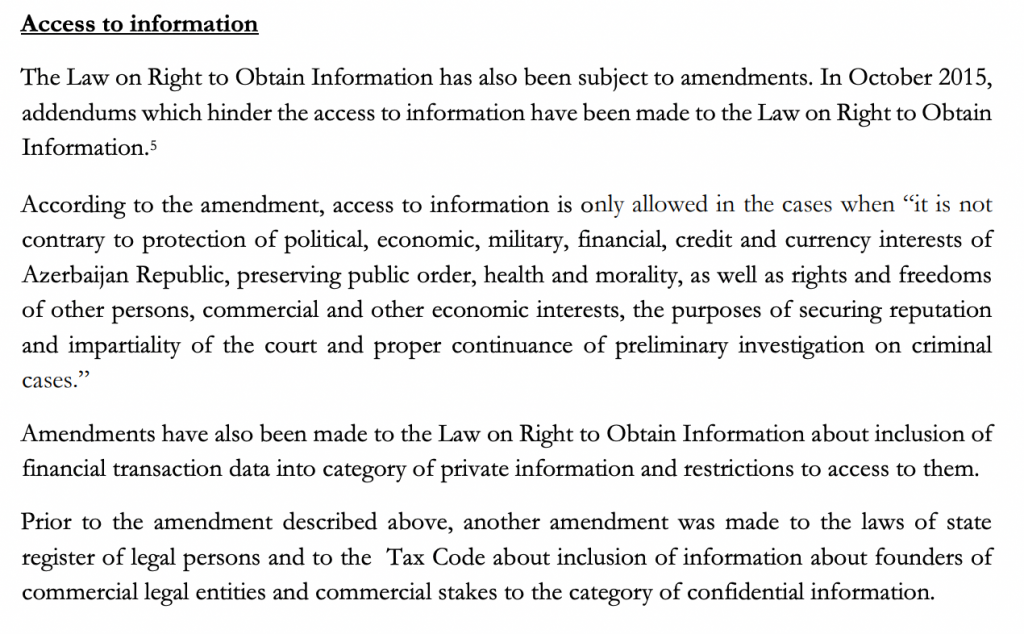In January, 2021, Az-Net Watch covered the new legal development concerning media freedom environment in Azerbaijan. At the time, it was announced, that a newly established Azerbaijani Agency for Media Development will replace, marred by corruption allegations, the State Support Fund for Mass Media Development and that a new media law was drafted by the Administration of the President for the President’s review in two months. Six months down the line, the draft media law, is finally set for review, albeit much to the disappointment of freedom of the media advocates and media practitioners in Azerbaijan.
According to Azadliq Radio report, the new law, entails licensing the Internet television and radio broadcasting. The proposal spearheaded by the National Television and Radio Council (NTRC) was announced on June 17.
Specifically the draft law states that:
1) the online channel must have its own website and broadcast from this site;
2) the online channels must broadcast for not less than 6 hours as determined by the proposed new draft bill.
In addition, the Agency for the Development of Mass Media would register online news sties and news agencies.
When Turan News Agency reached out to the NTRC for a comment, the Council refuted the claims that the draft bill mentioned the Internet TV. Similarly, when the agency asked the newly created Agency for Media Development, the agency said, it had no information of such requirement mentioned in the bill. And yet, it was the NTRC that told state news agency APA about the draft bill according to Azadliq Radio report.
Several independent experts, said if true, the new bill and specifically the proposal about licensing, violate Article 10 of the European Convention on Human Rights and norms enshrined in Azerbaijan’s Constitution.
Addressing the controversial new bill, a media law expert, Alasgar Mammadli, said in addition to contradicting Article 10 of the Convention the license requirement can only be applied to broadcasters using frequency transmissions which is not the case for Internet television. In another interview, Mammadli said, “Only during the broadcast, there should be compliance with the general law, which is currently regulated by the Law on Mass Media, Criminal Law, and other laws. There are no gaps, and there are even unnecessary regulations (restrictions).”
Another legal expert, Khaled Aghaliyev, evaluating the bill in a post on social media platform Facebook said, “It was clear that the government, which promised progressive reforms in the legal regulation of the media, worked harder than ever on reactionary regulatory mechanisms.” Aghaliyev said, in all likelihood, the lawyers working on “progressive regulations” took it upon themselves to interpret one specific sentence of Article 10 word for word. That sentence, notes Aghaliyev says, “This Article shall not prevent States from requiring the licensing of broadcasting, television or cinema enterprises.” “But they [lawyers] thought wrong. The mentioning of that licensing applies only to traditional television, and radio. Therefore, the part of the new bill that we know of, is reactionary, binding freedom of expression. It does not comply with our constitutional norms or the European Convention.”
Stressing the importance of adopting a new media law, Aghaliyev instead offers a different approach. “The government should share the full text of the new draft law and let the civil society prepare an alternative. The two drafts should then go to the Council of Europe experts. Let the Council decide and adopt the one recommended instead.” [A similar initiative took place in 2017 when Azerbaijan’s civil society submitted an alternative analysis of the law on access to information as part of the Good Governance partnership].

Covenant on Civil and Political Rights”. The full report can be accessed here: https://tbinternet.ohchr.org/Treaties/CCPR/Shared%20Documents/AZE/INT_CCPR_CSS_AZE_25228_E.pdf
